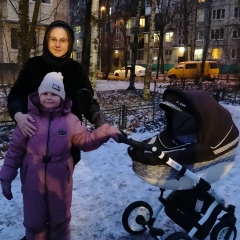Почему в школе ребенок - "зайка и паинька", а дома груб, упрям, не видит границ дозволенного?
1. А всё ли знаете о его школьной жизни? Вы же не находитесь с ним там постоянно. Вы видите как он ведет себя, когда приводите в школу, видите его дневник и эл.журнал, отметки, слышите, что говорит учитель на родительском собрании. И действительно, что еще нужно, чтобы узнать, как там, в школе, ребенок взаимодействует с окружением, как себя ведет. Хорошо, если у него в дневнике похвальные записи, пятерки, педагоги говорят, что все прекрасно и в поведении, и в оценках.
Это всё - внешние проявления школьной жизнедеятельности ребенка. Прекрасно, если родители интересуются и внутренними проявлениями. Например, если у ученика все стабильно хорошо, пришел он с пятеркой или четверкой домой, но когда родители интересуются, ребенок молчит, уходит, хмурится и т.д...возможно, стоит задуматься, а какой ценой досталась эта отметка, что произошло....Или мама спрашивает, как прошел день в школе, а чадо начинает избегать ответа, уходит, или вовсе, проявляет агрессию, необходимо понять, почему возникает такая реакция на эти вопросы.
Ну и еще важный момент, школа - совсем иная среда (социальный институт)для ребенка, где установлены правила внутреннего распорядка, которые оговариваются с первого класса. Психически здоровый ребенок не может позволить себе не контролировать себя, он учится (или научился это делать), и даже делает это систематически.
Другое дело, что дети - это дети. Шалости, баловство, повышенная активность - это нормально, если это не угрожает собственной жизни и здоровью (и окружающих).
2. Ребенок ведет себя хуже всего именно с тем, кого больше всего любит. Вернее, с кем наиболее близкие и доверительные отношения.
Да, да, вы не ослышались.
Если вы столкнулись с тем, что ваш ребенок ведет себя хуже всего именно с вами – радуйтесь, вы создали ему тот самый базовый уровень доверия, о котором так модно упоминать в современной теории привязанности. Это, действительно, здоровые отношения с мамой. То есть ребенок не боится своих собственных проявлений.
Если ребенок при маме ходит "по струнке", а всё плохое поведение выдает, скажем, няне, бабушке, учительнице, то вот это поведение должно вызывать гораздо большее напряжение. Значит, он с мамой собран, он с мамой, что называется, «в офисном костюме», у него включается самоконтроль.
Но вот, то самое плохое поведение чаще всего не обращено конкретно на родителя. Просто ребенок в школе жил по одной системе координат, а дома еще не успел перестроиться. Там учительница, а тут мама, а вместе с ней и другая система координат, требований и эмоциональных ожиданий, другая система реакций на то или иное поведение, на те или иные слова. У ребенка на какое-то время включается просто клин: одновременно работают две системы координат. Поэтому он теряется, и одна из возможностей выйти из этой растерянности – неадекватное поведение. Это всё происходит не на уровне осознавания, это истерика, поведенческий сбой. По возвращении домой накопившаяся за день усталость может выливаться в истерики и приступы гнева.
Тогда, что в таком случае сделать?
Немного переждать, чуть отстраниться, но не сильно, самому выдохнуть, после чего ребенок сам может перестроиться. Если этого не произошло, надо ему помочь, например, словами "Ты сейчас так балуешься, что я понимаю, что ты по мне очень скучал(а)". В целом, сохранять спокойствие, залог успеха.
Важно дать ребенку понять, что вы любите его, не боитесь проявлений его чувств и поможете ему преодолеть все водовороты на жизненном пути. Некоторым детям еще сложно осознать, что именно он чувствует: грусть, злость, разочарование… Помогите ему! Не надо переживать, если он не сумеет четко назвать причины своего гнева: ребенку важнее всего почувствовать, что его услышали. И наша задача, помочь перейти от агрессии к спокойствию и принятию, не искать сразу решение проблемы или оправдываться.
Помните, что дети - это отражение родителей.
"Не воспитывайте детей, все равно они будут похожи на вас. Воспитывайте себя."
1. А всё ли знаете о его школьной жизни? Вы же не находитесь с ним там постоянно. Вы видите как он ведет себя, когда приводите в школу, видите его дневник и эл.журнал, отметки, слышите, что говорит учитель на родительском собрании. И действительно, что еще нужно, чтобы узнать, как там, в школе, ребенок взаимодействует с окружением, как себя ведет. Хорошо, если у него в дневнике похвальные записи, пятерки, педагоги говорят, что все прекрасно и в поведении, и в оценках.
Это всё - внешние проявления школьной жизнедеятельности ребенка. Прекрасно, если родители интересуются и внутренними проявлениями. Например, если у ученика все стабильно хорошо, пришел он с пятеркой или четверкой домой, но когда родители интересуются, ребенок молчит, уходит, хмурится и т.д...возможно, стоит задуматься, а какой ценой досталась эта отметка, что произошло....Или мама спрашивает, как прошел день в школе, а чадо начинает избегать ответа, уходит, или вовсе, проявляет агрессию, необходимо понять, почему возникает такая реакция на эти вопросы.
Ну и еще важный момент, школа - совсем иная среда (социальный институт)для ребенка, где установлены правила внутреннего распорядка, которые оговариваются с первого класса. Психически здоровый ребенок не может позволить себе не контролировать себя, он учится (или научился это делать), и даже делает это систематически.
Другое дело, что дети - это дети. Шалости, баловство, повышенная активность - это нормально, если это не угрожает собственной жизни и здоровью (и окружающих).
2. Ребенок ведет себя хуже всего именно с тем, кого больше всего любит. Вернее, с кем наиболее близкие и доверительные отношения.
Да, да, вы не ослышались.
Если вы столкнулись с тем, что ваш ребенок ведет себя хуже всего именно с вами – радуйтесь, вы создали ему тот самый базовый уровень доверия, о котором так модно упоминать в современной теории привязанности. Это, действительно, здоровые отношения с мамой. То есть ребенок не боится своих собственных проявлений.
Если ребенок при маме ходит "по струнке", а всё плохое поведение выдает, скажем, няне, бабушке, учительнице, то вот это поведение должно вызывать гораздо большее напряжение. Значит, он с мамой собран, он с мамой, что называется, «в офисном костюме», у него включается самоконтроль.
Но вот, то самое плохое поведение чаще всего не обращено конкретно на родителя. Просто ребенок в школе жил по одной системе координат, а дома еще не успел перестроиться. Там учительница, а тут мама, а вместе с ней и другая система координат, требований и эмоциональных ожиданий, другая система реакций на то или иное поведение, на те или иные слова. У ребенка на какое-то время включается просто клин: одновременно работают две системы координат. Поэтому он теряется, и одна из возможностей выйти из этой растерянности – неадекватное поведение. Это всё происходит не на уровне осознавания, это истерика, поведенческий сбой. По возвращении домой накопившаяся за день усталость может выливаться в истерики и приступы гнева.
Тогда, что в таком случае сделать?
Немного переждать, чуть отстраниться, но не сильно, самому выдохнуть, после чего ребенок сам может перестроиться. Если этого не произошло, надо ему помочь, например, словами "Ты сейчас так балуешься, что я понимаю, что ты по мне очень скучал(а)". В целом, сохранять спокойствие, залог успеха.
Важно дать ребенку понять, что вы любите его, не боитесь проявлений его чувств и поможете ему преодолеть все водовороты на жизненном пути. Некоторым детям еще сложно осознать, что именно он чувствует: грусть, злость, разочарование… Помогите ему! Не надо переживать, если он не сумеет четко назвать причины своего гнева: ребенку важнее всего почувствовать, что его услышали. И наша задача, помочь перейти от агрессии к спокойствию и принятию, не искать сразу решение проблемы или оправдываться.
Помните, что дети - это отражение родителей.
"Не воспитывайте детей, все равно они будут похожи на вас. Воспитывайте себя."
Why is the child at school a “bunny and a good girl”, and at home rude, stubborn, does not see the boundaries of what is permitted?
1. Do you know everything about his school life? You are not there with him all the time. You see how he behaves when you bring him to school, you see his diary and electronic journal, notes, you hear what the teacher says at the parent meeting. And indeed, what else is needed to find out how there, at school, the child interacts with the environment, how he behaves. Well, if he has meritorious notes in his diary, fives, teachers say that everything is fine both in behavior and in assessments.
These are all external manifestations of the child’s school life. It’s great if parents are interested in internal manifestations. For example, if a student’s everything is stable well, he came home with a five or four, but when his parents are interested, the child is silent, leaves, frowns, etc. ... maybe it's worth considering what price this mark got, what happened. ... Or mother asks how the day went at school, and the child begins to avoid an answer, leaves, or does it show aggression, you need to understand why such a reaction to these questions arises.
Well and another important point, the school is a completely different environment (social institution) for the child, where the internal rules are established, which are negotiated from the first class. A mentally healthy child cannot afford not to control himself, he learns (or learned to do it), and even does it systematically.
Another thing is that children are children. Pranks, pampering, increased activity - this is normal if it does not threaten one’s own life and health (and those around them).
2. The child behaves worst of all with the one he loves the most. Rather, with whom is the closest and most trusting relationship.
Yes, yes, you heard right.
If you are faced with the fact that your child behaves worst of all with you - rejoice, you have created that very basic level of trust, which is so fashionable to mention in the modern theory of attachment. This is really a healthy relationship with mom. That is, the child is not afraid of his own manifestations.
If a child walks “along the line” with his mother, and all bad behavior is betrayed by, say, a nanny, grandmother, teacher, then this behavior should cause much greater stress. It means that he and his mother are assembled, he and his mother, as they say, “in an office suit”, his self-control is activated.
But now, that very bad behavior is most often not addressed specifically to the parent. It’s just that the child at school lived according to one coordinate system, but at home he did not yet have time to reconstruct. There is a teacher, and then mother, and with it another system of coordinates, requirements and emotional expectations, another system of reactions to this or that behavior, to certain words. A child simply turns on a wedge for a while: two coordinate systems work simultaneously. Therefore, he is lost, and one of the ways to get out of this confusion is inappropriate behavior. This is not happening at the level of awareness, this is hysteria, a behavioral failure. Upon returning home, the accumulated fatigue during the day can result in tantrums and bouts of anger.
Then what then to do?
Wait a bit, pull back a little, but not much, exhale yourself, after which the child himself can be rebuilt. If this does not happen, you need to help him, for example, with the words "You are so indulging in it now that I understand that you really missed me (a)." In general, keep calm, the key to success.
It is important to let the child know that you love him, are not afraid of the manifestations of his feelings and will help him overcome all the maelstroms in his life's journey. It’s still difficult for some children to realize exactly what he feels: sadness, anger, disappointment ... Help him! No need to worry if he is not able to clearly state the reasons for his anger: the most important thing for a child is to feel that they heard him. And our task is to help move from aggression to calm and acceptance, not to immediately look for a solution to the problem or to make excuses.
Remember that children are a reflection of their parents.
"Do not raise children, they will still be like you. Educate yourself."
1. Do you know everything about his school life? You are not there with him all the time. You see how he behaves when you bring him to school, you see his diary and electronic journal, notes, you hear what the teacher says at the parent meeting. And indeed, what else is needed to find out how there, at school, the child interacts with the environment, how he behaves. Well, if he has meritorious notes in his diary, fives, teachers say that everything is fine both in behavior and in assessments.
These are all external manifestations of the child’s school life. It’s great if parents are interested in internal manifestations. For example, if a student’s everything is stable well, he came home with a five or four, but when his parents are interested, the child is silent, leaves, frowns, etc. ... maybe it's worth considering what price this mark got, what happened. ... Or mother asks how the day went at school, and the child begins to avoid an answer, leaves, or does it show aggression, you need to understand why such a reaction to these questions arises.
Well and another important point, the school is a completely different environment (social institution) for the child, where the internal rules are established, which are negotiated from the first class. A mentally healthy child cannot afford not to control himself, he learns (or learned to do it), and even does it systematically.
Another thing is that children are children. Pranks, pampering, increased activity - this is normal if it does not threaten one’s own life and health (and those around them).
2. The child behaves worst of all with the one he loves the most. Rather, with whom is the closest and most trusting relationship.
Yes, yes, you heard right.
If you are faced with the fact that your child behaves worst of all with you - rejoice, you have created that very basic level of trust, which is so fashionable to mention in the modern theory of attachment. This is really a healthy relationship with mom. That is, the child is not afraid of his own manifestations.
If a child walks “along the line” with his mother, and all bad behavior is betrayed by, say, a nanny, grandmother, teacher, then this behavior should cause much greater stress. It means that he and his mother are assembled, he and his mother, as they say, “in an office suit”, his self-control is activated.
But now, that very bad behavior is most often not addressed specifically to the parent. It’s just that the child at school lived according to one coordinate system, but at home he did not yet have time to reconstruct. There is a teacher, and then mother, and with it another system of coordinates, requirements and emotional expectations, another system of reactions to this or that behavior, to certain words. A child simply turns on a wedge for a while: two coordinate systems work simultaneously. Therefore, he is lost, and one of the ways to get out of this confusion is inappropriate behavior. This is not happening at the level of awareness, this is hysteria, a behavioral failure. Upon returning home, the accumulated fatigue during the day can result in tantrums and bouts of anger.
Then what then to do?
Wait a bit, pull back a little, but not much, exhale yourself, after which the child himself can be rebuilt. If this does not happen, you need to help him, for example, with the words "You are so indulging in it now that I understand that you really missed me (a)." In general, keep calm, the key to success.
It is important to let the child know that you love him, are not afraid of the manifestations of his feelings and will help him overcome all the maelstroms in his life's journey. It’s still difficult for some children to realize exactly what he feels: sadness, anger, disappointment ... Help him! No need to worry if he is not able to clearly state the reasons for his anger: the most important thing for a child is to feel that they heard him. And our task is to help move from aggression to calm and acceptance, not to immediately look for a solution to the problem or to make excuses.
Remember that children are a reflection of their parents.
"Do not raise children, they will still be like you. Educate yourself."

У записи 29 лайков,
3 репостов,
406 просмотров.
3 репостов,
406 просмотров.
Эту запись оставил(а) на своей стене Анна Богданова
















































